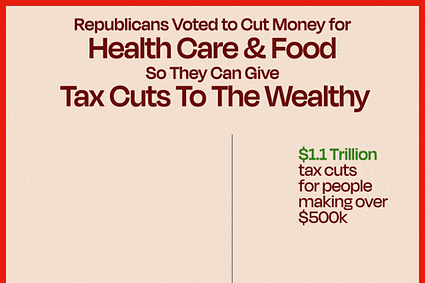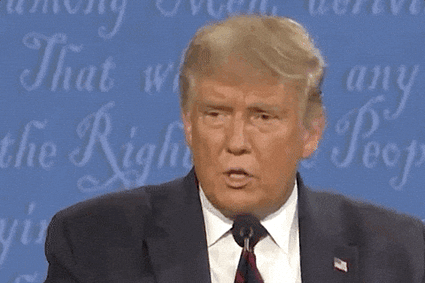
The media’s obsession with polls in the political spectrum is damaging to our civil society. I think a keen illustration of this was the recent Voice to Parliament for Indigenous Australian’s referendum. The constant polling around this drove the political debate to a large degree. Australians watched as support for the Voice dropped over the weeks and months according to the polls. What had been reported prior to the constant polling as having broad public support was eroded with each update to the polls. What I saw happening was uncertain Australians finding certainty in going with the flow of public opinion. It became alright to say No via perceived safety in numbers, according to the polls. Polling and manipulation by media is damaging to civil society.

Polls As Politicised Weapons
It showed how polling can become a politicised weapon in the hands of PR merchants and strategists. Newspoll comes to mind in this instance. Their previous and likely continuing association with News Corp has me thinking about those that want to make the news and not just report on it. The media, more generally, are in the business of turning every civic event and policy into a political contest. Their aim is to get eyeballs on their content via massaging the adversarial angle. In Australia, as is the same in the US and UK, the realm of government is constantly reported through the lens of it being a political shitshow.

Voice Polling Sunk Its Chances
The Voice referendum failed and pundits told us that once Peter Dutton chose to not offer bipartisan support it never had a chance of succeeding. Indeed, Dutton and News Corp aggressively took up the cudgel against the proposal for constitutional change to recognise Aboriginal and Torres Islander people with a Voice to Parliament on issues impacting them. ‘If you don’t know, vote No’ was the catchy slogan of their campaign. Hardly an enlightening call to action but effective just the same.
A celebration of Australian ignorance!
Polling Is A Strategic Political Weapon
Polling is a strategic political weapon. If a polling company selectively polls a limited number of respondents in areas they confidently suspect will be against the policy or political side in government and the results of this poll are published widely it cannot not have an effect on public opinion. Polling questions can be slanted in such a way to encourage desired outcomes. Managed polling strategies of this nature can ignite a political fire and produce a weaponised wave of anti-government sentiment.
I am sure that professional political strategists are not unaware of the power of polling to influence public support for parties and candidates. It would be a major weapon in their arsenal and utilised wherever possible.
“And yet recent 2024 polls, which serve, at best, as snapshots of the electorate a year out, become news events unto themselves, generating reams of coverage and endless commentary. They’re not actually breaking news events, like, say, a train derailment, even if treated as such. They’re more creations of a media industrial complex that longs for easy data points, for things that feel like facts but are actually imprecise measuring mechanisms.
Even if the intention of conducting a poll is to capture the views and sentiments of voters, the outsized coverage of it may distort the picture of what’s going on. As Boorstin wrote, “The shadow has become the substance…. By a diabolical irony the very facsimiles of the world which we make on purpose to bring it within our grasp, to make it less elusive, have transported us into a new world of blurs.”

The Murdoch press with Fox News, Sky News Australia, network radio, and their glut of major newspapers are in the business of influencing political outcomes in Australia, America, and Britain. Objectivity is not something their editorial standards profess to. News Corp ushered in the op-ed and the power of opinion over investigative journalism. Their blatantly biased right wing approach to reporting is a big cog in the wheel of conservative politics in the Anglosphere. Fox News lost a billion dollar libel suit in America over false reporting about the 2020 election Donald Trump lost. Truth is no impediment to the fake news peddled by Fox News in the US. The absence of standards regarding factual content in the media is a major concern around the world. America is the most polarised it has ever been, according to pundits there. Murdoch fans the fires and makes money telling his one eyed Republican party viewers only what they want to hear.

Calls For An Enquiry Into The Murdoch Media
Calls for an enquiry, a Royal Commission into News Corp and the Murdoch media in Australia have been growing louder. Polling and publishing polls to determine public opinion would be well worth an examination, in my view. It would be interesting to discover the connections between those involved in Newspoll and News Corp.
Are there tacit agreements about strategies undertaken with these polls and their publication via News Corp platforms? Polling and manipulation by media.
Polling and social media are both just forms of gossip really, encased in new clothing to make them look more respectable. Public opinion gathered up and coalesced into instruments of persuasion. The ANU survey of 4, 200 respondents about the Voice referendum exposed the big gaps in educational standards in Australia via age groups, with older Aussies not finishing high school in the main. These voters bought into the divisive and misinforming No campaign and could not comprehend the generational disadvantage rife in First Nation’s communities. You learn how to see the perspective of others by studying them in higher education. You don’t commonly derive this ability through working hard for yourself and family all your life. It is easy for those who haven’t studied to throw off at it and label it useless.
However, in this instance we see how civic life is enriched and deprived depending upon education levels of the citizenry.
“Our survey data tells us a few things about who was more or less likely to vote yes. No voters were more likely to be male, older, speaking a language other than English at home, with low levels of education, living outside of capital cities, and living in low-income households.”
Robert Sudha Hamilton is the author of Money Matters: Navigating Credit, Debt, and Financial Freedom.
©WordsForWeb

























